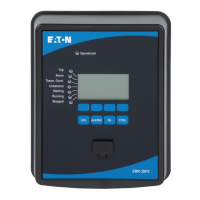3.7 Time Synchronization
The device gives the user the ability to synchronize the device with a central time
generator. This provides the following advantages:
• The time does not drift from the reference time. A continuously accumulating
deviation of the reference time thereby will be balanced. Also refer to the
Specications (Tolerances Real Time Clock) section.
• All time synchronized devices operate with the same time. Therefore, logged events
of the individual devices can be compared exactly and be evaluated (single events of
the event recorder, waveform records).
The device's time can be synchronized via the following protocols:
• IRIG-B
•
SNTP
• Communication protocol Modbus (RTU or TCP)
• Communication protocol DNP3
These protocols use dierent hardware interfaces and are dierent in accuracy. For
further information, see ╚═▷ “Tolerances / Specications”.
Without time synchronization
This is possible, but not recommended for industry-standard applications.
IRIG-B
Hardware Interface Recommended Application
IRIG-B Terminal Recommended, if interface available.
SNTP
Hardware Interface Recommended Application
RJ45 (Ethernet) Recommended alternative to IRIG-B, especially when using
IEC 61850 or Modbus TCP.
Modbus RTU
Hardware Interface Recommended Application
RS485, D-SUB or Fiber Optic Recommended when using Modbus RTU communication
protocol and when no IRIG-B real time clock is available.
126 www.eaton.com EMR-3MP0
3 Communication Protocols
3.7 Time Synchronization

